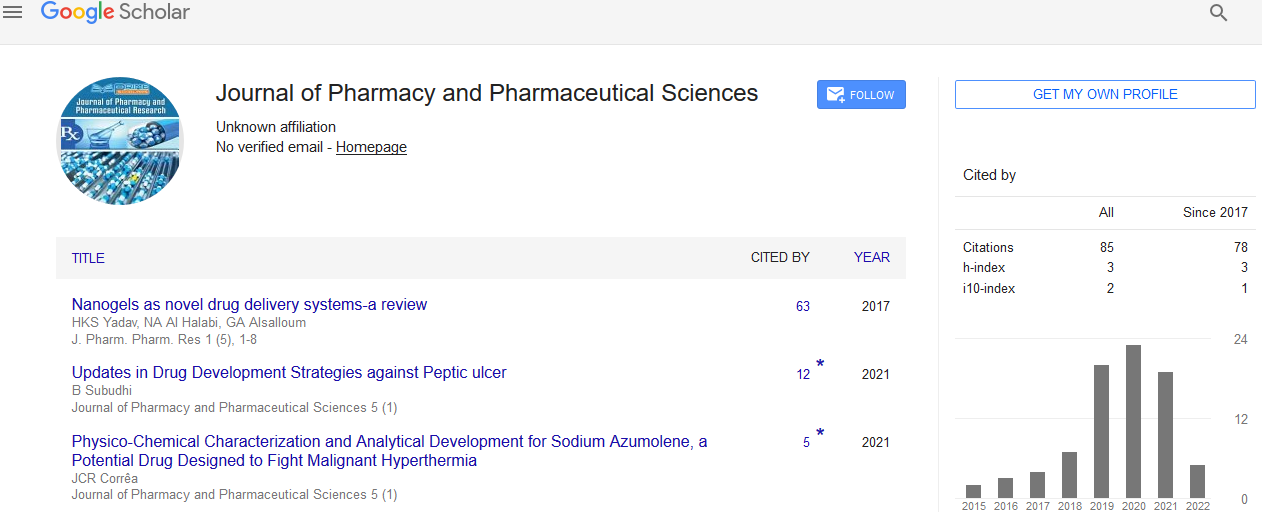Commentary - (2023) Volume 7, Issue 1
A Short Note on Monoclonal Antibodies in Cancer Drug Discovery
Feng Yue*
Department of Pharmacy, University of Peking, China
*Correspondence:
Feng Yue,
Department of Pharmacy, University of Peking,
China,
Email:
Received: 30-Jan-2023, Manuscript No. IPIPR-23-15847 ;
Editor assigned: 01-Feb-2023, Pre QC No. IPIPR-23-15847 (PQ);
Reviewed: 15-Feb-2023, QC No. IPIPR-23-15847 ;
Revised: 20-Feb-2023, Manuscript No. IPIPR-23-15847 (R);
Published:
27-Feb-2023, DOI: 10.21767/IPIPR.23.07.005
Description
With increasing life expectancy, the number of cancer cases has
reached unprecedented levels. In this scenario, the pharmaceutical
industry is investing heavily in this therapeutic area. Despite these
efforts, cancer drug discovery remains a very challenging field and
therapeutic innovations have yet to yield the expected clinical results.
However, the physiopathology of this disease is now better
understood and the discovery of new molecular targets has renewed
hopes for the development of improved therapies. Several
notable advances have been made, the most important of which
is the development of targeted therapies. Monoclonal antibodies
and antibody-small molecule conjugates have emerged as promising
approaches to improve drug selectivity and reduce side effects,
posing the greatest challenges in oncology drug discovery. When
the nitrogen mustard alkylated mechlorethamine was his first cancer
drug to hit the market, the world’s life expectancy was his 46.8
years. However, this demographic change is increasing the number
of deaths associated with age-related diseases such as cancer. This
makes cancer the second leading cause of death in the world today.
Therefore, despite the large number of anticancer agents currently
on the market, the constant development of new antitumor agents
remains one of the most important public health needs.
Compounds that act as antimetabolites, DNA alkylating agents,
microtubule disrupting agents, and compounds that inhibit DNA
synthesis are classified as cytotoxic agents. These molecules act
as less selective toxicants and, despite their potency, offer a narrow
therapeutic window. This class includes ground-breaking antineoplastic
agents developed in the late 1940s. Another class of
oncology drugs, called targeted therapies, consists of molecules
that modulate the activity of proteins specifically involved in tumorigenesis
and cancer progression. Examples of these drugs are
mAbs and small molecules that interfere with specific signaling
pathways associated with malignant transformation. In general, mAbs do not permeate cell membranes and instead act on proteins
on the cell surface. Alternatively, small molecules enter cells
and disrupt signaling pathways by acting on intracellular molecular
targets. A notable small-molecule targeted therapy is imatinib, a
selective inhibitor of the BRC-Abl tyrosine kinase overexpressed in
Chronic Myelogenous Leukemia (CML). Imatinib is a pioneering targeted
therapy and breakthrough in cancer drug discovery. Imatinib
has had tremendous clinical success, being approved and widely
prescribed for more than 8 types of cancer.
Using antibodies as a system to selectively deliver cytotoxic drugs
to tumor cells is another approach to explore synergy between targeting
and cytotoxic compounds. ADC therapy aims to reduce side
effects associated with the non-selective nature of cytotoxic drugs.
The conjugate is designed to remain non-toxic until it reaches the
targeted neoplastic tissue. This system allows selective delivery
of drugs to cancer cells after linker cleavage. Therefore, to develop
an effective ADC, these three components must be optimized.
FDA-approved ADCs are currently available and they are brentuximab
vedotin and adtrastuzumab emtansine. Current pharmaceutical
research has brought to market innovative medicines that exert
their pharmacological effects through unprecedented mechanisms
of action. Despite the advances made in the field of advanced
targeting exemplified by the development of venetoclax, most of
these proteins are still poorly understood.
Acknowledgement
The author is grateful to the journal editor and the anonymous reviewers
for their helpful comments and suggestions.
Conflict of Interest
The author declared no potential conflicts of interest for the research,
authorship, and/or publication of this article.
Citation: Yue F (2023) A Short Note on Monoclonal Antibodies in Cancer Drug Discovery. J Pharm Pharm Res. 07:005.
Copyright: © 2023 Yue F. This is an open-access article distributed under the terms of the Creative Commons Attribution License,
which permits unrestricted use, distribution, and reproduction in any medium, provided the original author and source are
credited.

